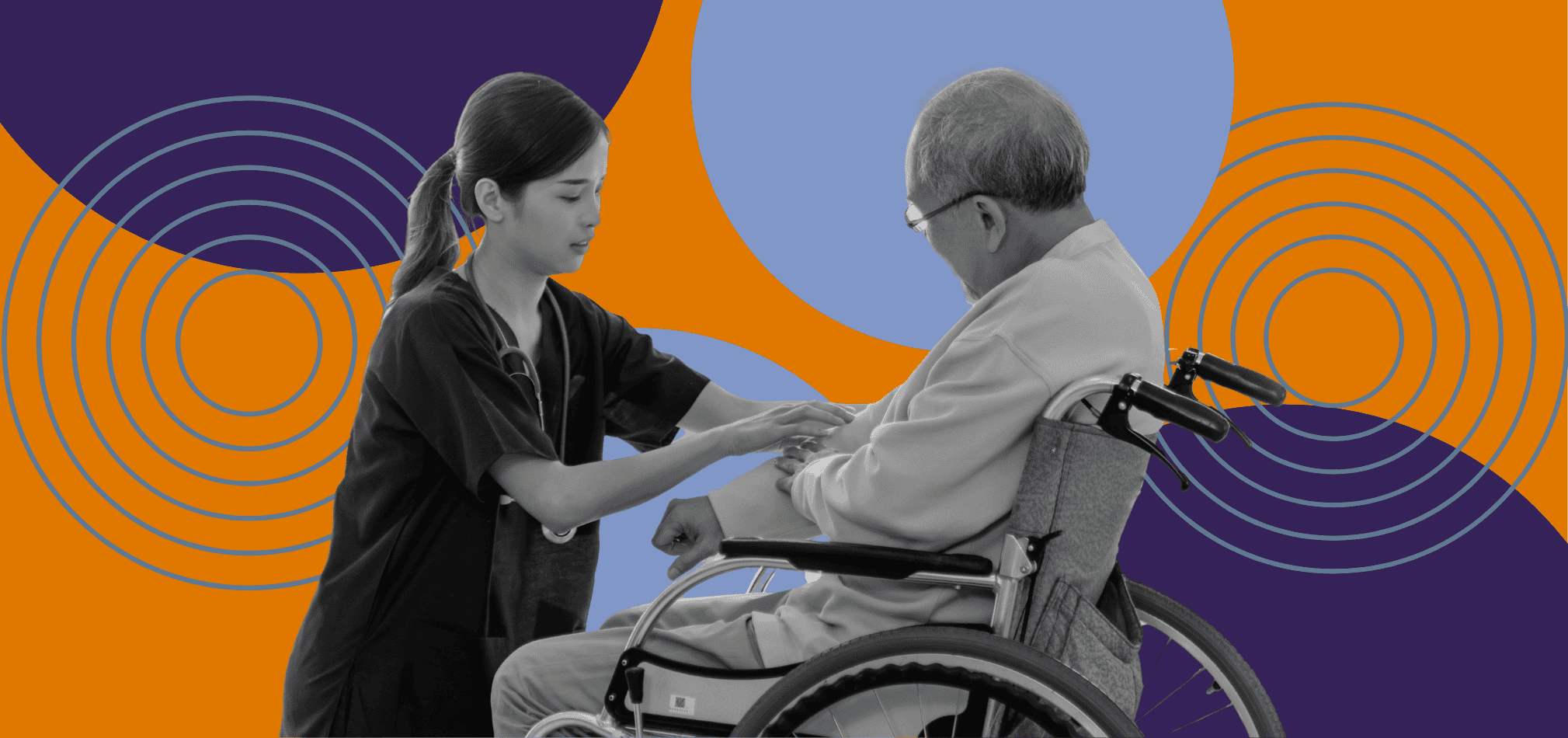What’s the Difference Between Home Care and Skilled Home Health?
September 24th, 2025
4 min read
By Abigail Karl

If you’re a home health agency owner or administrator, you’ve probably had this happen: a family calls asking for “home health” because their loved one needs help with cooking, bathing, and companionship. But what they’re really describing is home care—not home health.
The reverse happens too: sometimes a patient needs wound care and physical therapy, but their family assumes a private caregiver can do the job.
This mix-up isn’t just an annoyance. It can create frustrated patients, delayed referrals, and unrealistic expectations when people believe Medicare will pay for services it doesn’t cover. The difference between home care and home health isn’t just terminology. It directly impacts billing, compliance, and patient trust.
*This article was written in consultation with Mariam Treystman.
At The Home Health Consultant, we’ve worked with hundreds of Medicare-certified agencies. We’ve seen firsthand how clear explanations can turn a confusing conversation into one that builds credibility.
In this article, we’ll walk through the differences between home care and skilled home health in:
- What Does Skilled Home Health Mean?
- What Does Home Care Mean?
- What Are the Eligibility Differences Between Home Health & Home Care?
- What Are Staff Training Requirements in Home Health v.s. Home Care?
- How Are Services Billed in Home Health v.s. Home Care?
- Can a Patient Receive Both Home Health and Home Care?
We’ll also share real-world examples so you can explain it simply to patients and referral sources.
What Does Skilled Home Health Mean?
Home Health, sometimes called skilled home health, is a Medicare benefit that delivers medical care in the patient’s home.
To qualify for home health, patients must:
- Be homebound
- Need intermittent skilled care like nursing or therapy
- Receive services under a physician’s order
For a more in-depth breakdown of home health eligibility criteria, we have an article linked below.
Think about a patient recovering from knee replacement surgery. They can’t safely get out to outpatient PT, so Medicare sends a physical therapist to the home three times a week. Or imagine a patient with a complex wound that renders them immobile. Medicare covers skilled nursing visits for wound care because it’s medically necessary.
That’s the heart of home health: short-term, skilled, physician-directed care that helps patients recover or stabilize without leaving home.
But not all patients need skilled services. Some just need an extra set of hands in the house. That’s where home care comes in.
What Does Home Care Mean?

Home Care, also called personal care or private duty care, is non-medical support provided at home. It doesn’t require a doctor’s order, and Medicare generally doesn’t cover it.
Instead, it’s typically privately paid or funded through long-term care insurance or state Medicaid programs (National Institute on Aging; Medicaid.gov).
For example, imagine a patient who can manage their diabetes independently, but they struggle with bathing and cooking. A home caretaker might come in daily to help with meals, light housekeeping, and companionship. This support keeps the patient safe and comfortable, but it’s not skilled medical care—and that’s why Medicare won’t pay for it.
It’s easy to see how patients (and sometimes even referral partners) confuse the two. Both happen in the home, both involve caregivers, but the services and coverage are completely different.
Next, let’s look more closely at who qualifies for each type of care.
How Do Eligibility and Oversight Differ Between Home Care and Skilled Home Health?
The biggest difference between the two models is who decides and what’s required:
- For Home Health, a doctor (or nurse practitioner/PA) must order services. A formal plan of care guides the visits, and patients must continue to meet homebound and skilled-need criteria for coverage. You can find an in depth breakdown of home health eligibility criteria by clicking below.
- For Home Care, families or state programs decide what help is needed. No doctor’s order is required, and services can continue indefinitely as long as they’re paid for.
Here’s an example: if Mrs. Smith comes home from the hospital with heart failure and needs medication management, her cardiologist writes a home health order. But if Mrs. Smith’s daughter simply wants someone to keep her mom company during the day, she’d look for a home care agency instead.
And of course, who provides the care depends on the staffing and training standards for each.
How Are Staff Trained in Home Health v.s. Home Care?
Home Health staff must meet strict federal standards. Certified home health aides (CHHAs), for example, need at least 75 hours of training that covers:
- Personal care
- Infection control
- Supervised practical experience (CMS – CoPs).
Also, nurses and therapists must obviously be licensed professionals.
Home Care staff, on the other hand, may or may not need formal credentials. Requirements vary widely by state. Some require background checks and training, while others leave it up to each company.
This difference matters when families assume that a home care professional can do wound care or medication management. They can’t. That’s the role of a skilled nurse in home health. And that distinction ties directly to billing.
How Are Services Paid For in Home Health v.s. Home Care?

What’s covered by insurance, specifically Medicare, is often where the most confusion arises.
- Home Health is usually covered by Medicare, as long as the patient meets eligibility criteria.
- Home Care is most often private pay. Some families use long-term care insurance, and some states offer Medicaid Home and Community-Based Services (HCBS) for eligible patients (Medicaid.gov).
Here’s the problem agencies face: families often hear “care at home” and assume Medicare will foot the bill. It’s not until you explain the difference, skilled vs. non-medical, that expectations become realistic.
And sometimes, families end up using both at the same time.
Can Home Care and Home Health Work Together?
Home care and home health can work together, and many patients need both.
For example, let’s say a patient was discharged from the hospital after a hip fracture. His doctor orders home health PT and nursing visits to monitor his healing. But he also needs daily help getting dressed, cooking meals, and keeping the house tidy. His family hires a caregiver to cover those gaps.
This combination works well: Medicare covers the skilled services, while the family pays privately for non-medical support.
Who Does The Home Health Consultant Serve?
At The Home Health Consultant, we work exclusively with skilled care providers, specifically Medicare-certified home health agencies and hospice agencies. We don’t consult for private duty home care agencies.
Our focus is compliance, survey readiness, and operations for agencies delivering skilled care. By clarifying the difference between home care and home health, we hope to help agencies avoid common pitfalls and communicate more clearly with patients and referral sources.
If you’re new to the skilled home health world and are looking on tips to get referrals, check out the article below.
*Disclaimer: The content provided in this article is not intended to be, nor should it be construed as, legal, financial, or professional advice. No consultant-client relationship is established by engaging with this content. You should seek the advice of a qualified attorney, financial advisor, or other professional regarding any legal or business matters. The consultant assumes no liability for any actions taken based on the information provided.



